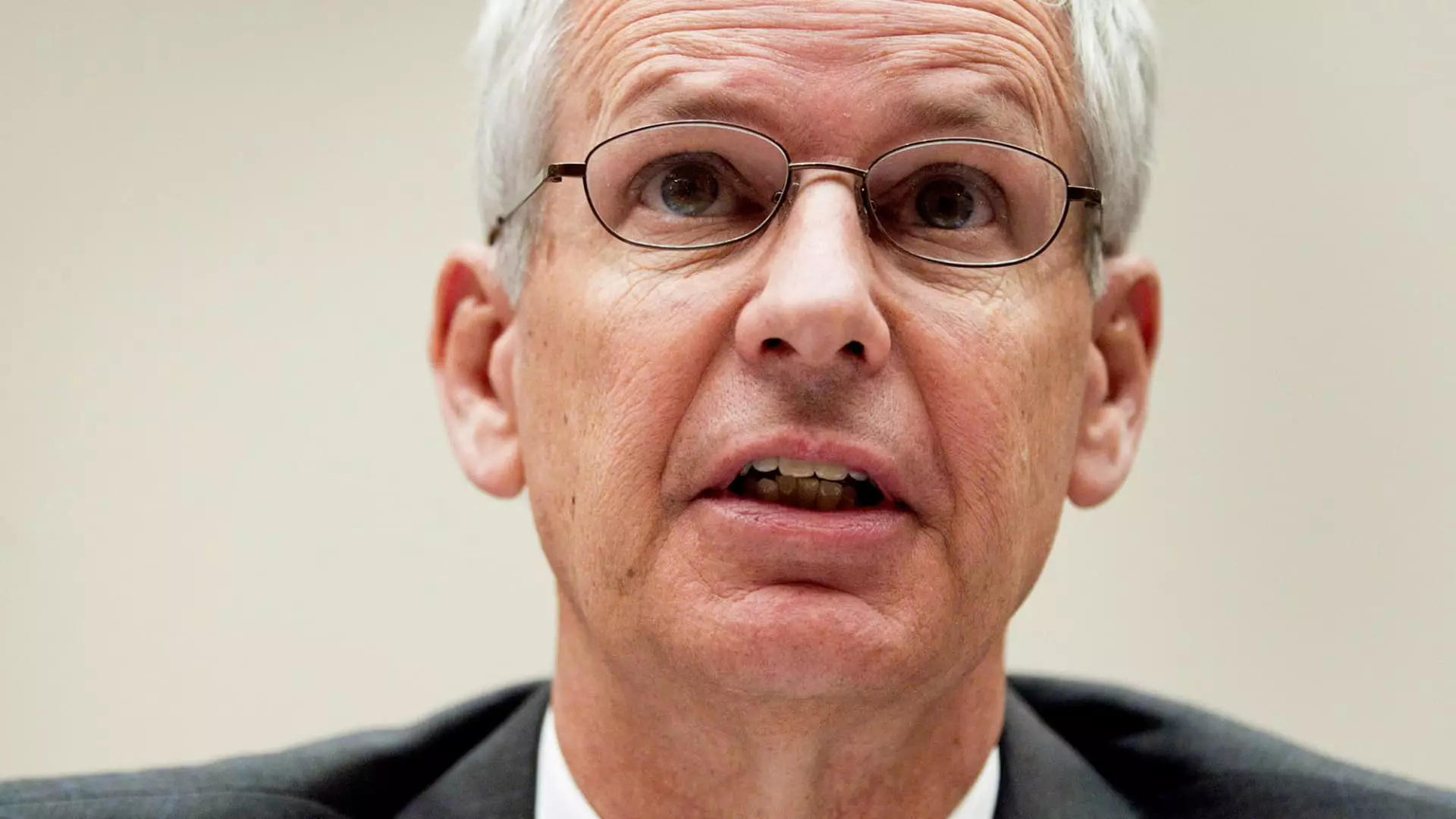In a business landscape that is evolving at a dizzying pace, the recent developments surrounding Dish Network serve as sobering reminders of how faded dreams can tragically morph into disappointments. Established as a pioneer in the satellite television industry, Dish Network once dominated with its innovative offerings, carving a niche in a competitive market. Yet today, the company seems to find itself in a precarious position, effectively mirroring the ending of the very iconic sitcom “Seinfeld,” which its co-founder Charlie Ergen once referenced in discussing strategic pathways for the business.
The year 2011 marked the onset of an ambitious trajectory for Dish, where Ergen likened the company’s uncertain future to a “Seinfeld” episode. Each episode of the sitcom introduced various seemingly disconnected plot lines, yet these threads would deftly converge by the end. However, unlike those whimsical narratives, the unfolding story of Dish Network has not resolved into a gratifying conclusion. Most starkly visible is the company’s recent acquisition by DirecTV for a nominal sum. This acquisition, approved under regulatory scrutiny, catalyzed a significant drop in EchoStar’s stock prices, demonstrating a stark market reaction to a perceived failure to thrive.
Attempting to forge a transition from traditional pay-TV to a wireless network, Dish has grappled with an exodus of subscribers towards more appealing streaming options. Traditional models have become obsolete as cable-cutters pivot towards cost-effective alternatives like Netflix, Hulu, and live TV services that effectively integrate broadband.
The statistics speak volumes: Dish and DirecTV collectively lost 63% of their video subscribers since 2016. With dwindling customer numbers, it’s essential to analyze the impact on the enterprise value of these companies. At the time when Dish and DirecTV previously discussed merging back in 2014, the market valuations illustrated the viability of convergence. However, as the satellite TV landscape stagnated, Dish found itself with an enterprise value in freefall.
Despite acquiring Boost Mobile to reinvigorate its offerings, the challenge of securing adequate capital to run both its legacy pay-TV business and a budding wireless operation proved insurmountable. EchoStar’s recent consolidation of resources is a clear indication of how far the company has fallen from its once-ambitious plans.
The evolving circumstances have led to questions surrounding the leadership and strategic foresight of Dish. Ergen’s metaphorical representation of weaving various pathways forward became too convoluted, leading to a distraction that ultimately detracted from the company’s core competencies. Instead of fortifying their position within the pay-TV domain, Dish seemed to scatter focus across an array of plausible ventures without firmly committing to any.
In a CNBC interview, CEO Hamid Akhavan candidly acknowledged the challenges of nurturing the wireless business, stating, “We couldn’t feed [the wireless] business properly.” These sentiments crystalize a fundamental truth: without a clear direction, organizations can falter and lose sight of their competitive edge.
The comparison to the “Seinfeld” finale is indeed poignant. Much like the show’s conclusion was critiqued as lackluster relative to the brilliance of prior seasons, Dish’s strategic misadventures have culminated in perceived failures that fail to resonate with industry expectations. As its business erodes, it begs the question: how can a company once so full of promise devolve into such a tangled web of misaligned ambitions?
The trajectory of Dish Network serves not just as a cautionary tale for its executives but as an imperative lesson across the industries facing rapid disruption. As we reflect on this narrative, one is left to ponder the importance of clarity, focus, and adaptation in an ever-changing marketplace. The belief in a convergence that will “all come together” is far less satisfying when the outcome feels like a letdown. A story once brimming with potential finds itself at a crossroads, illustrating the adage that not all plotlines resolve elegantly; sometimes they unravel instead.

